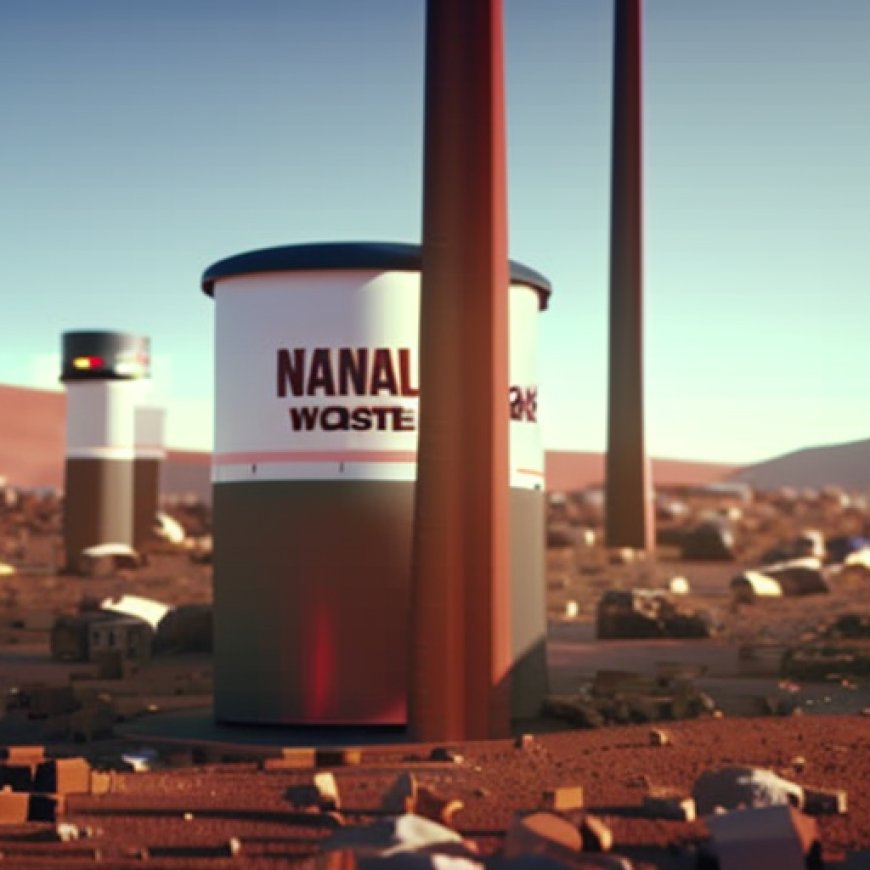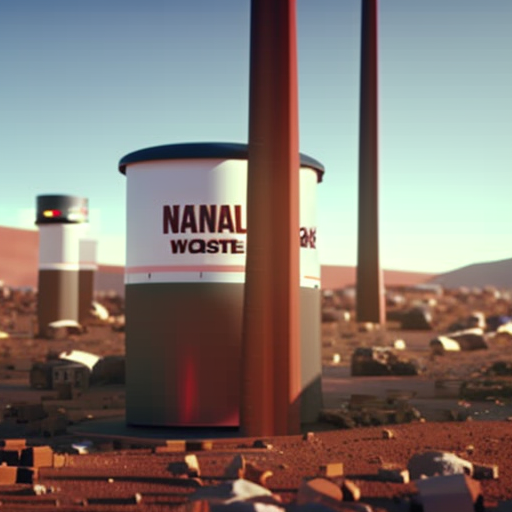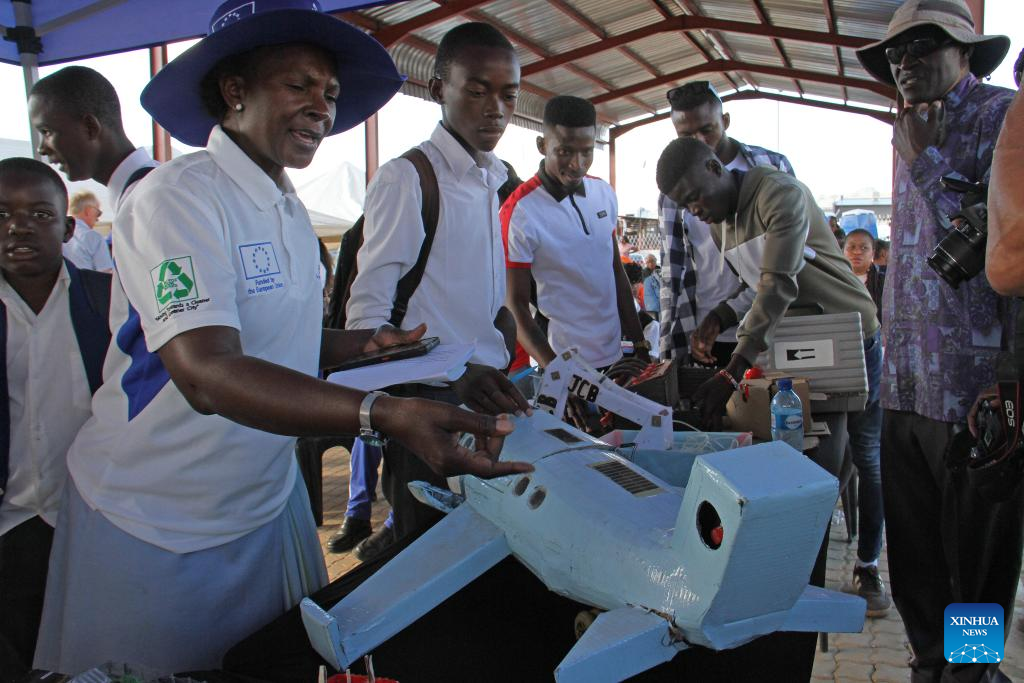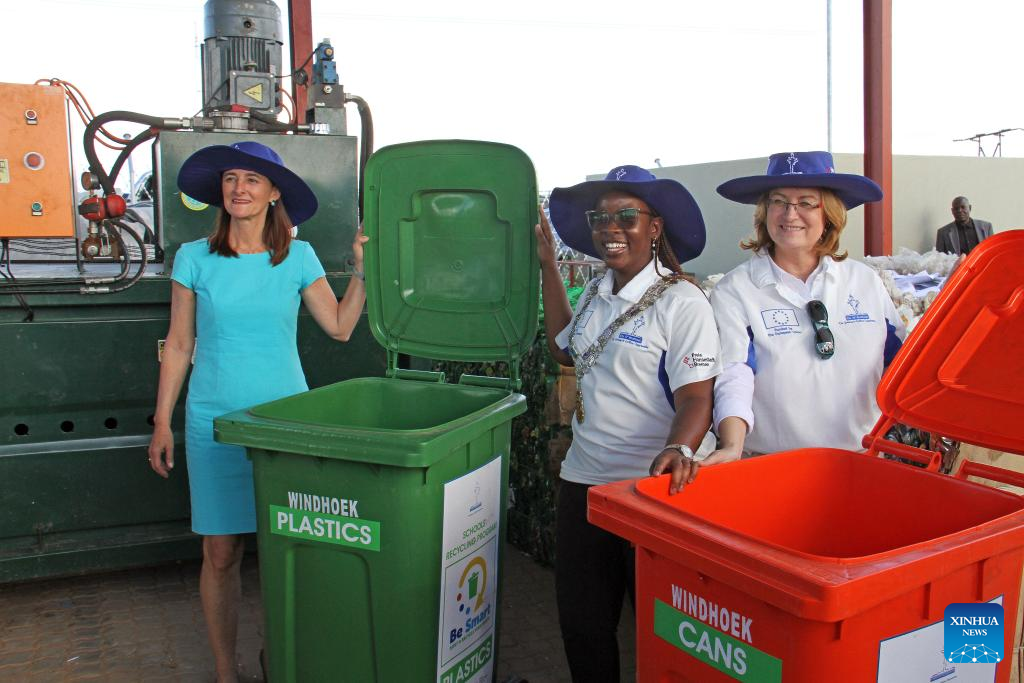Namibia inaugurates first waste buyback center to boost circular economy
Namibia inaugurates first waste buyback center to boost circular economy Xinhua


Namibia Inaugurates First Waste Buyback Center to Promote Sustainable Development Goals

Introduction
Namibia celebrated the inauguration of its first waste buyback center (WBBC) on April 12, 2024. The center, located in the informal settlement of Katutura in Windhoek, aims to reduce waste volumes, minimize environmental impact, promote recycling, and create job opportunities through startup incubation focused on waste reengineering. This initiative is part of the project “Improving Solid Waste Management in Windhoek,” which is financed by the European Union and implemented jointly with the Free Hanseatic City of Bremen.
Significance of the WBBC
The establishment of the WBBC aligns with Namibia’s commitment to achieving the Sustainable Development Goals (SDGs), particularly those related to sustainable cities and communities (SDG 11), responsible consumption and production (SDG 12), and decent work and economic growth (SDG 8). The center not only serves as a physical facility but also plays a crucial role in advancing environmental stewardship, economic empowerment, and community development.
European Union’s Support
The European Union has provided significant funding of 2.2 million euros (about 2.34 million U.S. dollars) for the project, which was launched in 2020 and will span four years. The objective of this funding is to transition Namibia towards a more sustainable model known as a “circular economy.” Windhoek serves as a pilot project for this transition, aiming to mitigate environmental harm and promote growth through waste recycling.
Waste Management Process
The acting chief engineer for the City of Windhoek, Stellio Tsauseb, explained the waste management process during the inauguration ceremony. He emphasized the importance of waste separation, stating that different types of waste, such as aluminum, polyethylene terephthalate (PET), and paper, must be separated for efficient recycling. This separation ensures cleanliness and allows for accurate weighing of each waste type. Individuals bringing recyclable materials may receive payments in cash or coupons, which can be redeemed at retail partners for various items, including food. This payment process aims to incentivize recycling efforts and streamline waste management in Windhoek.
Future Plans
Following the successful conclusion of the pilot project, a second waste buyback center will be established, with plans for additional centers across Namibia. These centers will contribute to the country’s goal of becoming a leader in Africa in terms of solid waste management standards by 2028, with a focus on waste reduction and achieving zero waste to landfill.

SDGs, Targets, and Indicators
-
SDG 11: Sustainable Cities and Communities
- Target 11.6: By 2030, reduce the adverse per capita environmental impact of cities, including by paying special attention to air quality and municipal and other waste management.
- Indicator: Waste buyback center established to reduce waste volumes and promote recycling.
-
SDG 12: Responsible Consumption and Production
- Target 12.5: By 2030, substantially reduce waste generation through prevention, reduction, recycling, and reuse.
- Indicator: Waste buyback center established to promote recycling and waste reduction.
-
SDG 8: Decent Work and Economic Growth
- Target 8.5: By 2030, achieve full and productive employment and decent work for all women and men, including for young people and persons with disabilities, and equal pay for work of equal value.
- Indicator: Waste buyback center creates job opportunities through startup incubation focusing on waste reengineering.
Table: SDGs, Targets, and Indicators
| SDGs | Targets | Indicators |
|---|---|---|
| SDG 11: Sustainable Cities and Communities | Target 11.6: By 2030, reduce the adverse per capita environmental impact of cities, including by paying special attention to air quality and municipal and other waste management. | Waste buyback center established to reduce waste volumes and promote recycling. |
| SDG 12: Responsible Consumption and Production | Target 12.5: By 2030, substantially reduce waste generation through prevention, reduction, recycling, and reuse. | Waste buyback center established to promote recycling and waste reduction. |
| SDG 8: Decent Work and Economic Growth | Target 8.5: By 2030, achieve full and productive employment and decent work for all women and men, including for young people and persons with disabilities, and equal pay for work of equal value. | Waste buyback center creates job opportunities through startup incubation focusing on waste reengineering. |
Analysis
The article discusses the inauguration of Namibia’s first waste buyback center (WBBC), which is part of the project “Improving Solid Waste Management in Windhoek.” This project is financed by the European Union and aims to reduce waste volumes, minimize harmful environmental effects, promote recycling, and create job opportunities through startup incubation focusing on waste reengineering.
Based on the content of the article, the following SDGs, targets, and indicators can be identified:
SDG 11: Sustainable Cities and Communities
- Target 11.6: By 2030, reduce the adverse per capita environmental impact of cities, including by paying special attention to air quality and municipal and other waste management.
- Indicator: The establishment of the waste buyback center aims to reduce waste volumes and promote recycling, contributing to the reduction of the adverse environmental impact of cities.
SDG 12: Responsible Consumption and Production
- Target 12.5: By 2030, substantially reduce waste generation through prevention, reduction, recycling, and reuse.
- Indicator: The waste buyback center is established to promote recycling and waste reduction, aligning with the target of reducing waste generation.
SDG 8: Decent Work and Economic Growth
- Target 8.5: By 2030, achieve full and productive employment and decent work for all women and men, including for young people and persons with disabilities, and equal pay for work of equal value.
- Indicator: The waste buyback center creates job opportunities through startup incubation focusing on waste reengineering, contributing to the target of achieving full and productive employment.
Overall, the article highlights the efforts in Namibia to improve solid waste management, promote recycling, and create economic opportunities through the establishment of a waste buyback center. These initiatives align with the Sustainable Development Goals mentioned above and their corresponding targets and indicators.
Behold! This splendid article springs forth from the wellspring of knowledge, shaped by a wondrous proprietary AI technology that delved into a vast ocean of data, illuminating the path towards the Sustainable Development Goals. Remember that all rights are reserved by SDG Investors LLC, empowering us to champion progress together.
Source: english.news.cn

Join us, as fellow seekers of change, on a transformative journey at https://sdgtalks.ai/welcome, where you can become a member and actively contribute to shaping a brighter future.







